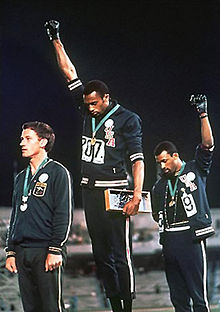I spent much of this week watching TV on the life of our beloved Nelson Mandela. What an extraordinary man we had as our President who brought about democracy in South Africa. Humility, forgiveness, …
Live life like an artist! – Andrew Verster
Live your life like an artist and enjoy life's journey! "Every artist enters unknown, uncharted territory every day of their lives.There are no maps, except for those you make yourself. There are …
Continue Reading about Live life like an artist! – Andrew Verster →
Dave Du Plessis survives being shot in the Amazon
Dave Du Plessis, a South African from Durban is an adventurer. All adventurers know that you face risks when pushing boundaries. But then who wants to live life from an armchair, cocooned in safety. …
Continue Reading about Dave Du Plessis survives being shot in the Amazon →
Winning starts in the head!
1968 America Gold Medalist - Sprinter Tommie Smith The other evening I really enjoyed watching a BBC Postcard interview with the American sprinter Tommie Smith. In 1968 he won the Gold medal in the …
If at first you don’t succeed, try and try again!
How often are we given the advice 'if at first you don't succeed, try and try again!' It's a common saying meant to give encouragement. HOWEVER it really isn't very good advice. It's actually very …
Continue Reading about If at first you don’t succeed, try and try again! →
Charles Dickens on Hardship
Charles Dickens - Worldwide, people are celebrating the bicentenary of the birth of this very famous author. At the time he was writing there were only 60 books in print in England! (Time magazine …





